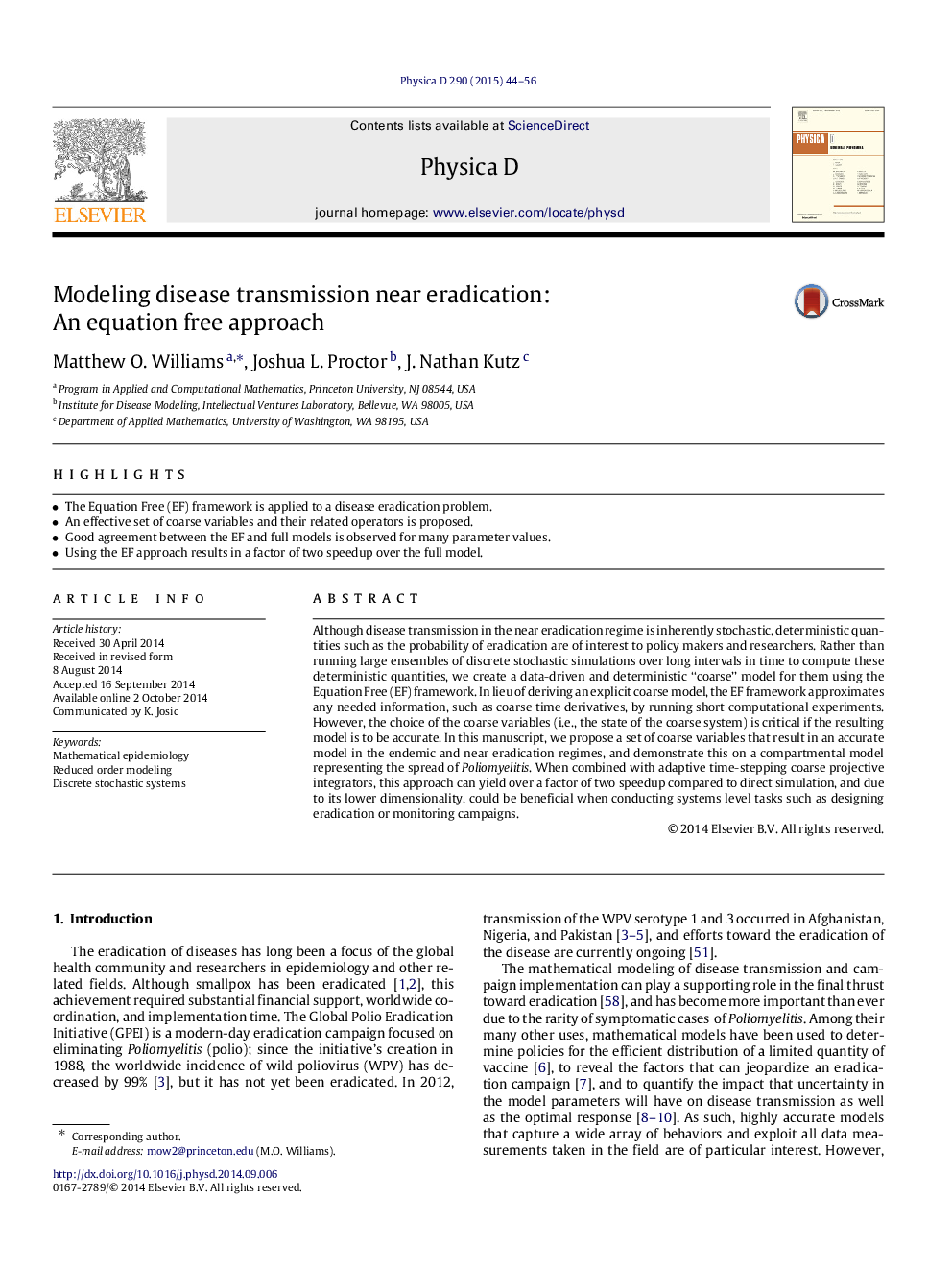| Article ID | Journal | Published Year | Pages | File Type |
|---|---|---|---|---|
| 1898373 | Physica D: Nonlinear Phenomena | 2015 | 13 Pages |
•The Equation Free (EF) framework is applied to a disease eradication problem.•An effective set of coarse variables and their related operators is proposed.•Good agreement between the EF and full models is observed for many parameter values.•Using the EF approach results in a factor of two speedup over the full model.
Although disease transmission in the near eradication regime is inherently stochastic, deterministic quantities such as the probability of eradication are of interest to policy makers and researchers. Rather than running large ensembles of discrete stochastic simulations over long intervals in time to compute these deterministic quantities, we create a data-driven and deterministic “coarse” model for them using the Equation Free (EF) framework. In lieu of deriving an explicit coarse model, the EF framework approximates any needed information, such as coarse time derivatives, by running short computational experiments. However, the choice of the coarse variables (i.e., the state of the coarse system) is critical if the resulting model is to be accurate. In this manuscript, we propose a set of coarse variables that result in an accurate model in the endemic and near eradication regimes, and demonstrate this on a compartmental model representing the spread of Poliomyelitis. When combined with adaptive time-stepping coarse projective integrators, this approach can yield over a factor of two speedup compared to direct simulation, and due to its lower dimensionality, could be beneficial when conducting systems level tasks such as designing eradication or monitoring campaigns.
